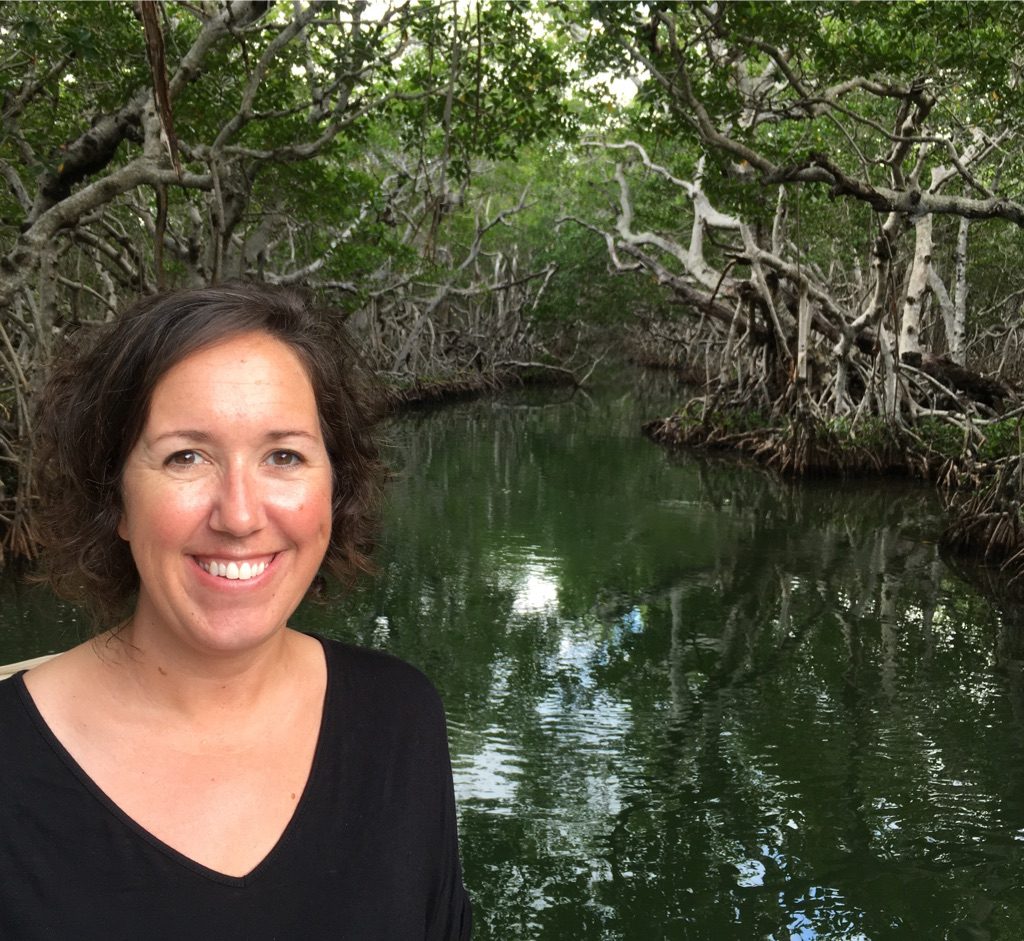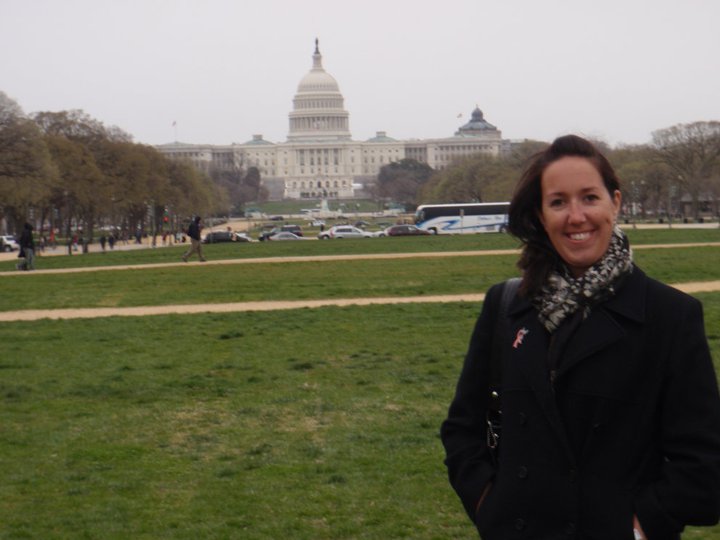Dr. Alexa Lamm was thrilled to be nominated for the Borlaug CAST Communication Award. When she received the call that she was selected she said, “I felt surprised and humbled. CAST is an amazing platform for talking about the science I’m passionate about and have built a career to pursue.”

Alexa grew up in California and was involved with 4-H and agriculture from an early age. She attended Colorado State University to study animal science, pre-vet option, and was involved in several collegiate agricultural clubs. Alexa was an undergraduate student worker and then graduate assistant in the Colorado Cooperative Extension Director’s office while pursuing her master’s degree in extension education.
After graduation, she was hired as an agricultural extension agent in Colorado and focused on improving agricultural production practices and 4-H youth development. Alexa reflected on her time as an extension agent for eight years, where she worked across Colorado in three counties, “I loved educating people, being involved in the community, running the county fairs, working with the fair board, and seeing people implement strategies I was offering.”
Alexa always knew she wanted to be in academia so she moved with her husband to pursue a doctoral degree at the University of Florida. While working toward her Ph.D., from 2008-2011, she focused on the influence of extension programs and how education could impact and advance agricultural practices. “I wanted the public to be informed about extension and didn’t want them questioning why extension was important.” After completing her Ph.D., the University of Florida Institute of Food and Agricultural Sciences (UF/IFAS) hired her to help start a center focused on measuring the impact of agricultural and natural resource policy.
That center went on to combine forces with other faculty striving to develop a center focused on communicating about agriculture and natural resources issues with the public and decision makers so policy could be informed by science. Upon receiving state funding, Alexa was the first tenure-tracked faculty member hired within the newly created Center for Public Issues Education in Agriculture and Natural Resources and worked there for six years; four as the associate director of the center. In 2018, Alexa took a new position at the University of Georgia, where she was charged with measuring and communicating the impact of extension programming. Alexa is now an associate professor of science communication at the University of Georgia in the Department of Agricultural Leadership, Education and Communication. She spent the last year launching their brand new doctoral program and looks forward to welcoming their first class of doctoral students this August.
What Alexa loves most about her job is its diversity–that every day brings different challenges. She enjoys selecting research topics, analyzing data, and studying how people process information about agriculture. She is also deeply committed to developing a future workforce to support agriculture. “I love working with graduate students because I’m able to teach them about science and research. I’ve learned how much psychology and sociology affect people’s decisions and I truly enjoy passing that knowledge on to others.” She enjoys collaborating with others–both scientists and those working in the field, attending meetings with people from diverse agricultural fields, and teaching. Alexa works on ways to communicate science to the public and decision makers so people are able to comprehend difficult topics and make informed decisions about agriculture and the environment.
Alexa’s most recent research examines how people are consuming information from news sources while they were under stay at home orders related to COVID-19. She is interested in identifying how information processing during this time has impacted how people think about the food supply chain and their personal interaction with the environment.

Alexa excels at speaking to groups and helping them work collectively on how to clearly communicate agricultural and environmental science. Alexa says, “I believe one person can make a difference, but when a group of people has a common goal and are working collectively they can make a massive amount of difference.” Natural in front of a crowd, Alexa has been asked by multiple institutions and groups to provide inspirational talks, do motivational speaking, and enjoys speaking at school assemblies.
The best piece of advice about science communication Alexa says she has received is to “tailor messages to your audience. One size does not fit all, you have to know your audience and then tailor the message to them in a way they are able to process the information.”
Read her BCCA press release here.
Your donation to CAST helps support the CAST mission of communicating science to meet the challenge of producing enough food, fiber and fuel for a growing population. Every gift, no matter the size, is appreciated.